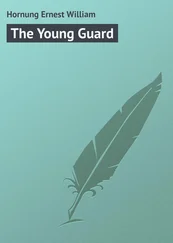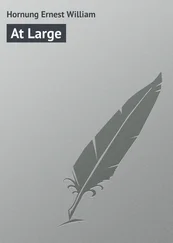Ernest Hornung - Denis Dent - A Novel
Здесь есть возможность читать онлайн «Ernest Hornung - Denis Dent - A Novel» — ознакомительный отрывок электронной книги совершенно бесплатно, а после прочтения отрывка купить полную версию. В некоторых случаях можно слушать аудио, скачать через торрент в формате fb2 и присутствует краткое содержание. Жанр: foreign_prose, на английском языке. Описание произведения, (предисловие) а так же отзывы посетителей доступны на портале библиотеки ЛибКат.
- Название:Denis Dent: A Novel
- Автор:
- Жанр:
- Год:неизвестен
- ISBN:нет данных
- Рейтинг книги:3 / 5. Голосов: 1
-
Избранное:Добавить в избранное
- Отзывы:
-
Ваша оценка:
- 60
- 1
- 2
- 3
- 4
- 5
Denis Dent: A Novel: краткое содержание, описание и аннотация
Предлагаем к чтению аннотацию, описание, краткое содержание или предисловие (зависит от того, что написал сам автор книги «Denis Dent: A Novel»). Если вы не нашли необходимую информацию о книге — напишите в комментариях, мы постараемся отыскать её.
Denis Dent: A Novel — читать онлайн ознакомительный отрывок
Ниже представлен текст книги, разбитый по страницам. Система сохранения места последней прочитанной страницы, позволяет с удобством читать онлайн бесплатно книгу «Denis Dent: A Novel», без необходимости каждый раз заново искать на чём Вы остановились. Поставьте закладку, и сможете в любой момент перейти на страницу, на которой закончили чтение.
Интервал:
Закладка:
Hornung E. W. Ernest William
Denis Dent: A Novel
CHAPTER I
THE SECOND OFFICER
"Land ahead!"
The North Foreland had been made advisedly snug for the night. In the middle watch she was under her three lower topsails and fore topmast staysail only. Not that it blew very hard, but the night was dark and hazy, with a heavy swell. And it was the last night of the voyage.
At eight bells there had been a cast of the deep-sea lead, with the significant result that the skipper had been the first to turn in; gradually the excited passengers had followed his example, instead of staying on deck to see the Otway light. The second mate had said there would be no Otway that night, and what the second said was good enough for most. The saloon skylight had become a clean-edged glimmer in the middle of the poop, the binnacle a fallen moon; not a port-hole twinkled on the rushing ink; and the surviving topsails, without visible stitch or stick aloft or alow, hovered over the ship like gigantic bats.
Four persons remained upon the poop: the middy of the watch, tantalized by muffled guffaws from the midshipmen's berth in the after-house; the man at the wheel, in eclipse above the belt, with the binnacle light upon one weather-beaten hand; and on the weather side, the second mate in reluctant conversation with a big cigar that glowed at intervals into a bearded and spectacled face, the smooth brown one of the young officer sharing the momentary illumination.
"It's all very well," said the senior man, in low persistent tones, "but if we don't have it out now, when are we to? You know what it will be like to-morrow: we shall land first thing, and you'll be the busiest man on board. As for the rules of the ship, if an owner can't use his discretion he might as well travel by some other line."
The young fellow was smiling pleasantly as the other puffed again.
"Very good, Mr. Merridew! I don't object if the captain doesn't; and of course I must tell you anything you want to know."
"Anything! My good young man, if I am to consider this matter for a moment (which I don't promise) I must at least know everything that you can tell me about yourself first; for what," continued Mr. Merridew, taking the cigar from his teeth, "what do you suppose I know about you at this moment? Absolutely nothing except that you seem to be a first-class sailor, as they tell me you are, and a very nice fellow, as I have found you for myself – aboardship; but of your shore-going record, of your position in life at home, and of your people and their position, to speak quite plainly, I know nothing at all."
Mr. Merridew delivered himself with a certain dispassionate unction, as one who could do the judicial to a turn, and enjoy it. Yet his tone was kindly, and the periods free from wilful offense.
"You may make your mind easy about my people. I have none," said the sailor, bitterly. A fatherly hand found his shoulder on the word.
"My dear fellow! I am so sorry."
"You mean relieved."
"I mean what I say," said Mr. Merridew, removing his hand.
It was the young man's turn to apologize, which he did with much frankness and more feeling.
"The truth is, sir, my parents have been dead for years; and yet they are nearly everything to me still – they were all the world until this voyage! My mother was Irish; her name would not be new to you, but it will keep. It may not be necessary for you to know it, or anything more about me, and in any case it can't alter me. But I am half-Irish through my mother – though you wouldn't think it."
"I would think it," remarked Mr. Merridew, blowing at his cigar as at a forge, until the red light found him looking wise through his spectacles, but the officer with one eye on his sails and no perceptible emotion in the other.
"My first name," he went on, "is as Irish as you like; it's Denis; and you may say that I've been living up to it for once!"
"Denis!" repeated Mr. Merridew, with interest. "Well, I know that name, anyhow; one of our partners – Captain Devenish's father – he's Denis Devenish, you know."
"Indeed," said Denis Dent, and there was a strange light in his spare eye. "Well, so much for my mother; my father was a Yorkshire dalesman, as his father and his father's father were before him. I am the first of them to leave the land."
"May I ask why?"
"It isn't our land any more. My father gave up everything to take my mother abroad, when her life was despaired of in England, and when her people – her own people – I can't trust myself to speak of them!"
And the young fellow turned abruptly aside, while Mr. Merridew puffed and peered at a massive though clean-cut face, whose only Irish feature was a pair of bright brown eyes, bold and resolute, yet quick to laughter, if quicker still to fire.
The south-easter sang through the unseen rigging; the ship rushed a fathom through the unseen sea. The second had a look at the compass, and came climbing back to windward with his hands in his pea-jacket pockets.
"And yet," said Mr. Merridew, flourishing his cigar, "and yet – you want to marry my daughter!"
"If she will have me, sir," said the sailor, with an uncertainty on that point in becoming contrast to his certainty of himself.
"But whether I will or not."
"I never said that, Mr. Merridew. I should be very sorry to take up such a position, I can assure you, sir."
"You would be sorry, but you would do it," retorted Mr. Merridew with acumen. "You would do as your father evidently did before you."
"I hoped we had finished with my parents, sir."
"But they left you nothing, if I understand aright," rejoined Merridew, changing his ground and his tone with some dexterity. "And you would marry my daughter on the pay of a junior officer in the merchant service."
"I never said that either. I have my captain's certificate, sir, as it is."
The new tone was the tone to take. Mr. Merridew went so far as to give his daughter her name.
"And Nan," said he, "might have ten thousand pounds for her marriage portion. I don't say she would, but for all you know she might have more. Her husband ought to bring at least as much into settlement, even as a self-respecting man, don't you think? And yet you would make her a merchant skipper's wife!"
The young man winced, as though for a flash he saw himself wholly in the wrong. Then his face hardened – all but the Irish eyes – and it was the face of a man who would justify himself with his life's blood. Impulse, initiative, temerity, were in the eyes, indomitable endurance in their solid setting.
"You take it for granted that I will never be anything more!" he exclaimed. "But, sir, once a sailor isn't always one. I've got on well at sea. I'd get on well on land – anywhere – at anything! You may smile. I feel it in me. Mr. Merridew, it may seem what you please, but I'm pretty young even for what I am now. Surely, surely, you would give me time – if she would?"
It was the Irishman speaking, the Irish blood spurting out in words, and Mr. Merridew distrusted the bulk of that race; but his cigar glowed again upon a mouth and jaw that came of harder stock, and for the moment his mind was illuminated too.
Here was this Denis Dent, not one young man, it struck him, but two young men in one, each with a very name of his own. Dents from the Dales, Denis from old Ireland! Mr. Merridew smiled through his spectacles, pleased with his conceit, not altogether disposed to regard it as such, but incontinently interested in a personality to which he had been so clever as to supply the key. The heart of the discoverer warmed toward his own. There was an attractiveness in Denis, a solid worth in Dent. Denis might win the girl. Dent would deserve her. And Denis Dent might have carried her own father with him, had he been the only young man in the case, or even on the poop of the North Foreland as she drove through the haze on the last night of her voyage.
Читать дальшеИнтервал:
Закладка:
Похожие книги на «Denis Dent: A Novel»
Представляем Вашему вниманию похожие книги на «Denis Dent: A Novel» списком для выбора. Мы отобрали схожую по названию и смыслу литературу в надежде предоставить читателям больше вариантов отыскать новые, интересные, ещё непрочитанные произведения.
Обсуждение, отзывы о книге «Denis Dent: A Novel» и просто собственные мнения читателей. Оставьте ваши комментарии, напишите, что Вы думаете о произведении, его смысле или главных героях. Укажите что конкретно понравилось, а что нет, и почему Вы так считаете.












